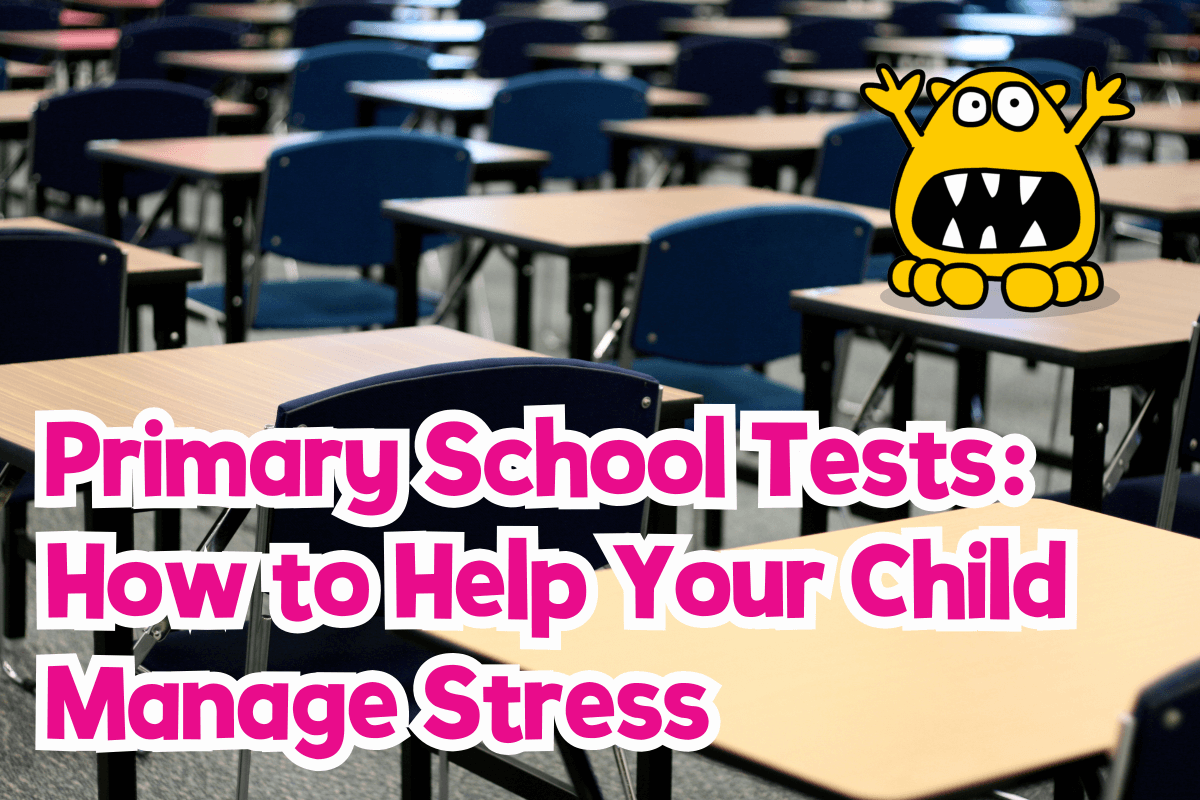Primary School Tests: How to Help Your Child Manage Stress

Primary school should be all about play, discovery and confidence-building – but when test time rolls around, it can throw even the calmest children off balance. Whether it’s the Year 1 Phonics Screening, Year 4 Multiplication Check or SATs in Year 6, tests can stir up nerves, frustration, and even full-blown stress.
The good news? There are simple, practical ways to support your child emotionally – while keeping the learning on track. Here’s what to expect, when, and how to help your child feel calm and confident.
Key Primary School Tests in the UK (Reception to Year 6)
Here’s a quick look at the main assessments your child might encounter in primary school:
Official National Primary School Tests:
- Reception baseline assessment – Completed within the first six weeks of Reception.
- Early years foundation stage profile – Assessed at the end of Reception.
- Year 1 Phonics Screening Check – A quick 1:1 reading check where children sound out real and made-up words. (More details in our Phonics Screening Test Guide)
- Optional Key Stage 1 tests – Some schools still use these in Year 2 to track progress.
- Year 4 Multiplication Tables Check (MTC) – A timed, on-screen test to check if children know their times tables up to 12×12.
- Key Stage 2 SATs (Year 6) – Tests in maths, reading, and grammar, punctuation and spelling (GPS). These happen in May and can feel like a big deal!
Other Tests Children Might Face in Primary School:
- Weekly spelling tests and maths fluency checks.
- End-of-term assessments – Many schools set mini SATs-style tests to track progress.
- 11+ and entrance exams – Some children preparing for grammar or private schools face additional exams in Year 5/6.
While none of these tests define your child’s abilities, the pressure can still build up. So how can you spot signs of stress and ease the pressure?
How to Spot Signs of Stress in Primary School Children
Children don’t always say, “I’m stressed about this test,” but their behaviour might show it:
- Becoming extra emotional or irritable
- Avoiding schoolwork or pretending tests aren’t happening
- Complaining of tummy aches or headaches
- Trouble sleeping or worrying at bedtime
- Perfectionism – redoing work unnecessarily or getting upset when things aren’t ‘right’
If any of this sounds familiar, try the strategies below to ease the pressure.
10 Simple Ways to Help Your Child Cope With Test Stress
1. Break Down the Big Stuff
Try using gentle, everyday language to reduce pressure. Calling it “just a quiz to see what you know” can shrink big, scary tests into something manageable. Remind them they don’t have to get everything right – tests help teachers know what to practise next.
2. Practice Little and Often
Short bursts of revision feel less intense, and work better. At Busy Things we think learning is best with lots of fun and laughter! You can try all our fun learning games free – to help with practising phonics, reading, maths, spelling and the whole primary curriculum.
3. Praise Effort, Not Perfection
Encourage your child to celebrate progress, not perfect scores. “You kept going – I’m proud of you!” is more powerful than “You got them all right.”
4. Use Fun Memory Tricks
Turn learning into a game! Chant times tables in silly voices, use mnemonics for spellings (e.g. “Because = Big Elephants Can Always Understand Small Elephants”) or draw funny doodles to remember tricky words. Laughter makes learning stick!
5. Make a Calm-Down Plan
If stress hits mid-test, what can they do? Teach them a simple calm-down trick (deep breath in, count to five, slow breath out). Practising at home helps them use it in the moment.
6. Normalise Mistakes
Show your child that getting things wrong is part of learning – not something to panic about. Try: “Oh, that was a tricky one! Let’s have another go.”
7. Balance is Everything!
When school gets intense, fun becomes even more important! Let them burn off stress with play, drawing, running around outside, or watching something silly. (Check out our fun stress-busting activities for kids blog!)
8. Share Your Own Test Stories
It helps to know grown-ups get nervous too! Tell them about a time you faced a test and how you got through it.
9. Avoid Comparisons
Every child is different. Reassure yours that they’re doing their best, and that’s more than enough.
10. Stay Curious About Their Feelings
Instead of asking “Are you worried?” try “What’s the trickiest part?” You’ll get a much clearer sense of how they’re really feeling.
Keep Primary School Tests in Perspective
Tests are just one part of school life. With a little support – and plenty of chances to play, laugh and relax – your child can feel confident and ready to take them on, and maybe even enjoy the challenge!
Looking for more ways to support your child?
10 Fun Stress-Busters for Kids
Helping Children Build Resilience
Mindful Activity Ideas for Kids
Helping Children Express Emotions through creativity
Busy Things is full of educational games and activities designed to make learning playful and pressure-free – even when tests are looming! Try Busy Things free!